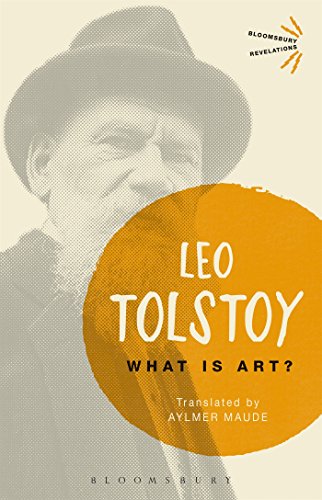-
An Actor Prepares
Constantin Stanislavski
Paperback (Berg Pub Ltd, June 27, 2013)An actor prepares is the most famous acting training book ever to have been written and the work of stanislavski has inspired generations of actors and trainers this translation was the first to introduce stanislavskis system to the english speaking world and has stood the test of time in acting classes to this day stanislavski here deals with the inward preparation an actor must undergo in order to explore a role to the full he introduces the concepts of the magic if units and objectives, of emotion memory, of the super-objective and many more now famous rehearsal aids now available in the bloomsbury revelations series to mark the 150th anniversary of stanislavskis birth, this is an essential read for actors, directors and anyone interested in the art of drama
-
The World Crisis: The Complete Set
Sir Winston S. Churchill
Paperback (Bloomsbury Academic, March 26, 2015)The World Crisis is considered by many to be Winston S. Churchill's literary masterpiece. Published across five volumes between 1923 and 1931, Churchill here tells the story of The Great War, from its origins to the long shadow it cast on the following decades. At once a history and a first-hand account of Churchill's own involvement in the war, The World Crisis remains a compelling account of the conflict and its importance.
-
A History of the English-Speaking Peoples Volume II: The New World
Sir Winston S. Churchill
Paperback (Bloomsbury Academic, March 26, 2015)"This history will endure; not only because Sir Winston has written it, but also because of its own inherent virtues - its narrative power, its fine judgment of war and politics, of soldiers and statesmen, and even more because it reflects a tradition of what Englishmen in the hey-day of their empire thought and felt about their country's past." The Daily Telegraph Spanning four volumes and many centuries of history, from Caesar's invasion of Britain to the start of World War I, A History of the English-Speaking Peoples stands as one of Winston Churchill's most magnificent literary works. Begun during Churchill's 'wilderness years' when he was out of government, first published in 1956 after his leadership through the darkest days of World War II had cemented his place in history and completed when Churchill was in his 80s, it remains to this day a compelling and vivid history. The second volume – The New World – explores the emergence of Britain on the world stage and a turbulent period at home: from Henry VIII's break with Rome and the English Reformation to the fending off of the Spanish Armada and the schism between parliament and crown that led to the civil war, the fall and rise of the monarchy and the rule of Oliver Cromwell. The book also covers the historic journey of the 'Mayflower' that saw the English-speaking peoples' arrival in the Americas.
-
The World Crisis Volume I: 1911-1914
Sir Winston S. Churchill
Paperback (Bloomsbury Academic, March 26, 2015)The World Crisis is considered by many to be Winston S. Churchill's literary masterpiece. Published across five volumes between 1923 and 1931, Churchill here tells the story of The Great War, from its origins to the long shadow it cast on the following decades. At once a history and a first-hand account of Churchill's own involvement in the war, The World Crisis remains a compelling account of the conflict and its importance.Volume I covers the origins and earliest days of the war from 1911-1914, as well as the longer history of the collapse of the Great Power system from the Franco Prussian war onwards. Churchill here explores the international tensions over the Balkan states that triggered the conflict as well as the arms race between the British and German navies.
-
What is Art?
Leo Tolstoy
Paperback (Bloomsbury Academic, Feb. 25, 2016)Leo Tolstoy is one of the most celebrated novelists of all time. As well as writing literary classics such as Anna Karenina and War and Peace he was also the author of some hugely influential critical and philosophical works. First published in 1898 his book length essay What is Art? has lost none of its power to challenge our perception of art and its function in society today. In this provocative work Tolstoy famously dismisses works by Shakespeare, Dante, Wagner and even many of his own works as 'bad art' based on various criteria including sincerity, ethics, morality and accessibility. Tolstoy took art seriously at a time when western civilization toyed with it as a mere pastime during the height of the Aestheticism movement. For him, art was natural and necessary to the advancement of humankind.In his introduction to this translation, W. Gareth Jones shows how vitally Tolstoy's personality and experiences in life were engaged in creating What is Art?. Jones shows how integral the essay was to his art and teaching, and why it continues to demand a response from us.
-
The World Crisis Volume I: 1911-1914
Sir Winston S. Churchill
Hardcover (Bloomsbury Academic, March 26, 2015)The World Crisis is considered by many to be Winston S. Churchill's literary masterpiece. Published across five volumes between 1923 and 1931, Churchill here tells the story of The Great War, from its origins to the long shadow it cast on the following decades. At once a history and a first-hand account of Churchill's own involvement in the war, The World Crisis remains a compelling account of the conflict and its importance.Volume I covers the origins and earliest days of the war from 1911-1914, as well as the longer history of the collapse of the Great Power system from the Franco Prussian war onwards. Churchill here explores the international tensions over the Balkan states that triggered the conflict as well as the arms race between the British and German navies.